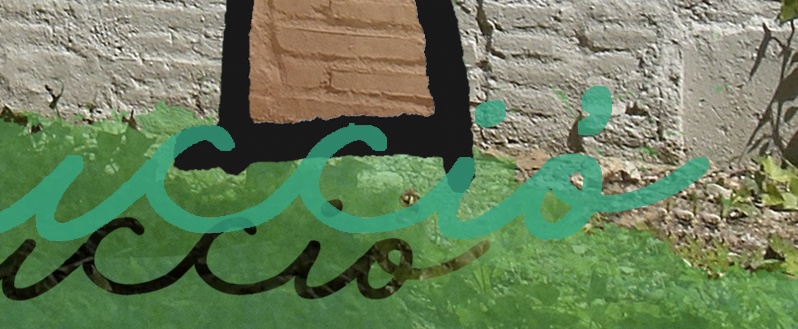A reflection on the use of standardized tests in the evaluation of early care
DOI:
https://doi.org/10.32093/ambits.vi56.5040Keywords:
Early Intervention, Systematic assessment, Standardized tests, Developmental Scales , Early Intervention Staff’s OpinionsAbstract
The aim of this work is to share a reflection on the assessment in early intervention programs, analyzing the frequency of use of standardized tests. We collected the opinions of 24 early intervention professionals, so it was possible to deeply analyze the characteristics of four tests that were more used by the professionals that we interviewed. For the analyses of the standardized tests, we took into account the following variables: year of publication, theoretical framework, availability of research data, sections included in each test, and scales data (year, country, community, age-range…). Results show a complex situation in which the objectives and the assessment dimensions are not homogeneous. In the same line, family and developmental contexts are not present in any of the tests that we analyzed. An explicit reflection on the assessment approaches and on the processes involved during early intervention assessments was missing. We discuss the results of the present study in terms of learning new ways to develop respectful procedures of assessment. The need to consider other variables such as family and developmental contexts in order to establish final decisions in assessment is also discussed.
References
Barrantes, R., Medina A., y Rupérez N., (2021). El cuerpo del niño nos cuenta una historia. El análisis de sus necesidades en el ámbito educativo desde una mirada sistémica. Cap. 8, 99-114. En Piro, M.C. y Alessandroni, N. (Eds.) (2021). Cuerpo, época y presentaciones sintomáticas actuales: Interrogantes y desafíos en psicopatología infanto-juvenil. EDULP – Editorial de la Universidad Nacional de La Plata.
Bian, X. Y., Chen, J. & Chen, J. Y. (2013). 年龄与发育进程问卷-第三版 (中文版). 上海: 上海世纪出版社股份有限公司科学技术出版社.
Bricker, D. (2002). Assessment, Evaluation, and Programming System for Infants and Children.2ª ed. Baltimore: Brookes.
Bronfenbrenner, U. (1979). The ecology of human development. Cambridge: Harvard University Press.
Colomer, T., Masot, M.T., & Navarro, I. (2005). «La evaluación psicopedagógica». En Bonals, J., Sánchez-Cano M., (coords.). La evaluación psicopedagógica (Vol. 208). Barcelona: Graó.
Dalmau-Montala, M., Balcells-Balcells, A., Giné Giné, C., Cañadas Pérez, M., Casas Masjoan, O., Salat Cuscó, Y., Ferré Cruz, V., & Calaf Montserrat, N. (2017). Cómo implementar el modelo centrado en la familia en atención temprana. Anales de Psicología / Annals of Psychology, 33(3), 641–651. Recuperado de: https://doi.org/10.6018/analesps.33.3.263611DMSCA, M. (2009). Escalas McCarthy de Aptitudes y Psicomotricidad para Niños. Madrid: TEA ediciones.
Echeita, G. &Calderón, I. (2014). Obstáculos a la inclusión: cuestionando concepciones y prácticas de evaluación psicopedagógica. Àmbits de psicopedagogia i orientació, 41, 2 época, 3-12. Recuperado de: https://www.researchgate.net/publication/262763685_Obstaculos_a_la_inclusion_ cuestionando_concepciones_y_practicas_de_evaluacion_psicopedagogica
Gutiez, P. & Ruiz, E. (2012). Orígenes y Evolución de la Atención Temprana. Una Perspectiva Histórica de la Génesis de la Atención Temprana en Nuestro País. Agentes Contextos y Procesos. Psicología Educativa Vol. 18, n.° 2, 107-122.
Josse, D. (1999). Escala de desarrollo psicomotor de la primera infancia (BLR: Brunet Lézine Revisado). Psymtéc.
Liu, Y. (2020). “Una revisión crítica de las escalas de evaluación del desarrollo más utilizadas en atención temprana”. Trabajo Fin de Máster. Repositorio Universidad Autónoma de Madrid.
https://repositorio.uam.es/handle/10486/129794
Martín, E., Perdices, C. & San Román, A. (2019) Inclusión Educativa en España. Opinión y debate. Educar y Orientar, 11, 22-26.
Moreno-Núñez, A., Murillo, E., Casla, M. & Rujas, I. (2021). The multimodality of infant's rhythmic movements as a modulator of the interaction with their caregivers, Infant Behavior and Development, 65, 101645. https://doi.org/10.1016/j.infbeh.2021.101645
Morin, E. (1999). La tête bien faite. Reprenser la réforme. Réformer la penseé. Paris: Editions du Seuil.
Newborg, J. (1998). Inventario de desarrollo Battelle. Madrid: TEA ediciones.
Nieto, C. & Campos, R. (2021). Early motor copying behaviours: analysis of theirfunctions and relationship with language. Early Child Development and Care. DOI: 10.1080/03004430.2021.2007904
Palomo, R. (2019). Identificando necesidades y barreras para una evaluación inclusiva. Entre la teoría y la práctica (pp.141-170). En Monarca, H., Gorostiaga, J.M. & Pericacho, F.J. (coord..). Calidad de la educación: aportes de la investigación y la práctica. Madrid: Dykinson. Recuperado de: https://www.researchgate.net/profile/Hector-Monarca/publication/331100185_CALIDAD_DE_LA_EDUCACION_APORTES_DE_LA_ INVESTIGACION_Y_LA_PRACTICA/links/5f9ee96f92851c14 bcf8e893/CALIDAD-DE-LA-EDUCACION-APORTES-DE-LA-INVESTIGACION-Y-LA-PRACTICA.pdf#page=141
Ribeiro, R. (2015). Antena detectora de naturalizaciones acríticas. Patologización de la infancia cotidiana. Teoría y Crítica de la Psicología nº5, 148–156.
Rodríguez, C. & Moro, C. (1998). El mágico número tres. Cuando los niños aún no hablan. Barcelona: Paidós.Rodríguez; C. & de los Reyes, J.L. (coord.) (2021). Los objetos sí importan. Acción educativa en la escuela infantil. Barcelona: Horsori.
Roid, G. H., &Sampers, J. L. (2011). Merrill-Palmer-R. Escalas de desarrollo. Madrid, España: TEA.
Simón, C., Palomo, R. & Echeita, G. (2019). Los servicios de orientación educativa y psicopedagógica ante el desarrollo de una educación más inclusiva. Educar y Orientar, 11, 54-58. Recuperado de: https://www.researchgate.net/profile/Cecilia-Simon-Rueda/publication/343587346_Los_servicios_de_orientacion_educativa_y_psicopedagogica _ante_eldesarrollo_de_una_educacion_mas_ inclusiva/links/5f32d85292851cd302ef20cf/Los-servicios-de-orientacion-educativa-y-psicopedagogica-ante-el-desarrollo-de-una-educacion-mas-
inclusiva.pdf
Untoiglich, G. (2020) ¿Cómo cuidamos a nuestras infancias en tiempos de la maquinaria medicalizadora? Revista Pensamiento Psicoanalítico, 3, 53-68. Recuperado de: http://pensamientopsicoanalitico.es/wp-content/uploads/2020/12/07-art4.pdf
Vygotski, L.S. (1930/1978). Mind in society: The development of higher psychological processes. Cambridge: Harvard University Press.

Downloads
Published
Issue
Section
License
The authors maintain their copyright and give the right to the first publication of the work to the journal, registered under a Creative Commons Attribution-Non Commercial-NoDerivs license. This license allows others to download the works and to share them with others as long as they credit the author, but it does not allow for any kind of modification or commercial use.














